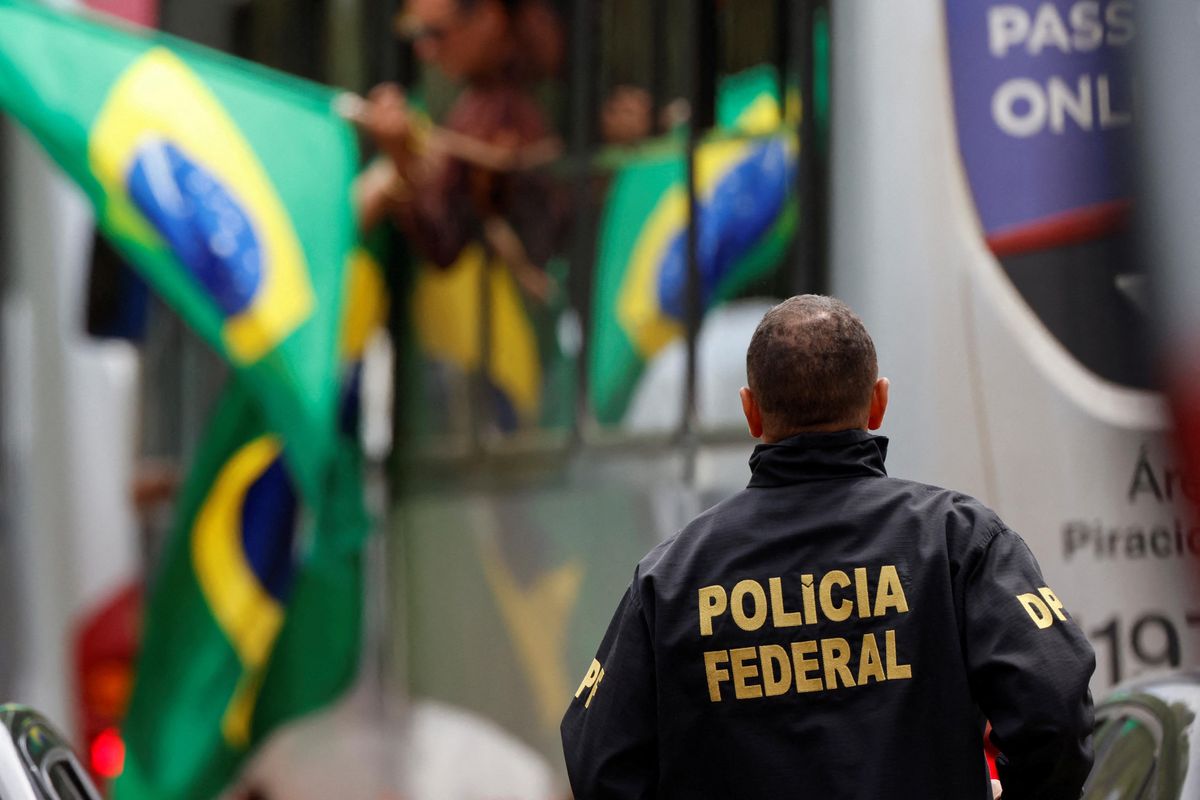Hardcore supporters of far-right former President Jair Bolsonaro ransacked Brazil's democratic institutions à la Jan. 6 on Sunday, and there’s strong anecdotal evidence that some members of the security forces didn’t do much to stop them.
It was, at a minimum, a dereliction of duty. Or perhaps it reflected their thinly veiled sympathy for what the protesters were trying to do: overturn the result of the 2022 election to reinstate Bolsonaro.
Local media spotted civilian cops and members of the military police in Brasília chatting with protesters and even escorting them as they stormed parliament, the presidential palace, and the Supreme Court. Ibaneis Rocha, the pro-Bolsonaro governor of the federal district, was suspended for 90 days for failing to prevent the attacks carried out by Bolsonaristas who reportedly arrived in Brasília days before in 100 buses that went unnoticed by the friendly men in uniform. And guess who decided to skip town and is apparently hiding in Florida? Anderson Torres, the capital’s now-fired security chief and Bolsonaro’s former justice minister.
In the end, no security personnel defied the federal order to retake the buildings. Still, the dramatic events have shone a spotlight on Brazil’s capital and on the close ties between the country’s security apparatus and Bolsonaro.
It’s unclear how widespread the phenomenon is. Brazil’s military and police don’t do surveys on the politics of its rank and file. But again, anecdotally, it’s an open secret that most of them are fans of the former president, an ex-army captain himself.
On the one hand, the military is traditionally conservative and thus ideologically aligned with a right-winger like Bolsonaro. On the other, its members have a strong incentive to respect hierarchy and to defend law and order. In that sense, they are not an immediate threat to democracy, says Chris Garman, managing director for the Americas at Eurasia Group.
Brazil's security apparatus, he explains, has strong survival instincts — in part due to lessons learned coming out of military rule in 1985. Very few of its members openly expressed any willingness to support Bolsonaro's efforts to overturn the election result or to defy orders by their commanders despite rumblings of a coup.
Yet, that's not the only risk — especially under the newly minted left-wing presidency of Luiz Inácio “Lula” da Silva.
"It's more of a gray zone," Garman says. Bolsonarista cops and soldiers might be less aggressive in clamping down on protests that might turn violent, as they've done with thousands of pro-Bolsonaro crowds that have been stirring up trouble across the country since their idol lost re-election to Lula two months ago.
The slow-burn threat is that the crackdown against the rioters and their backers deepens their mistrust of the government and disenchantment with the political class.
A big chunk of Bolsonaro's base — including many members of Brazil’s security apparatus — "came out of this election feeling that [it] was stolen in the loose sense of the word, not the narrow sense of the word from fraud," Garman says. "They view that establishment was out to undermine Bolsonaro and elect Lula" by stacking the odds against the former.
So what, if anything, can Lula do to prevent another 8 de Janeiro? With an Erdogan-style purge of the military and police out of the question, it all comes down to how the prosecution is handled.
For Garman, Lula will have to strike a tough balance between taking effective action against the perpetrators and making sure his measures don't smack of overreach that pushes Bolsonaristas so far into their corner that next time, the security men might be even less inclined to do their job.



















